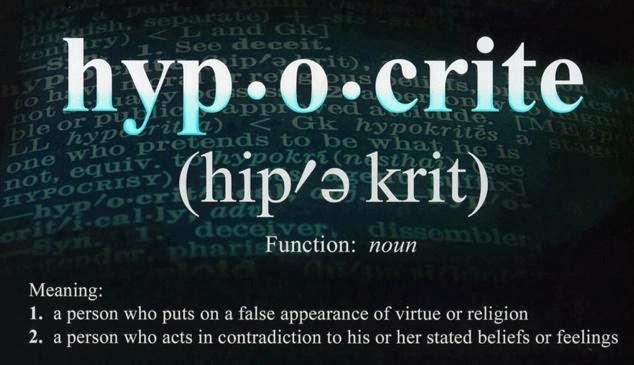Our campaign against political hypocrisy continues. This has become a full-time avocation. The latest sad entry comes from Oregon Senator Jeff Merkley, one of the key architects of the November, 2013 change to the Senate filibuster rules. It seems that Senator Merkley, a strong proponent of eliminating the filibuster, has become the filibuster’s greatest champion. It took less than four years, and a change in the party of the presidency, for this remarkable turnaround. It’s another example of why faith in our political leaders is at an all-time low. When will anyone – anyone – stand up on consistent principles? It’s more political hypocrisy.
The principled Senator Merkley has a deep and enduring respect for his Constitutional responsibilities. So, according to Senator Merkley, should the filibuster be available to the minority side in the Senate? Well of course not – except when “we” are the minority. All of which somehow allows him to claim the moral high ground when it comes to U.S. Supreme Court nominations. Is there more political hypocrisy here? You be the judge.
Senator Merkley’s Lecture on the Damaging Filibuster

We let the leader of the 2013 filibuster reform directly explain his philosophy. We give Senator Merkley the floor, from the Senate floor. The following are his comments on November 20, 2013 during the Obama presidency (with our emphasis):
I rise today . . . to protest the paralysis that has kept the Senate from confirming well-qualified nominees to do their jobs.
The U.S. Senate provides the opportunity for all of us to weigh in on our constitutional role of advice and consent . . . regarding nominations . . . to the judicial branch by the President. . . . [T]he Senate should . . . serve as a significant check on the quality of Presidential nominations, the quality of nominations or nominees for the court . . . . The Senate should vet nominees. We should question them. We should debate them. And then we should vote on whether to confirm or reject them.
What is absolutely clear, however, is that when advice and consent becomes block and destroy, then the Senate process is broken. A minority of one branch of government should never be able to systematically undermine the other two branches of government. Yet that is exactly what we have today. . . .
These [judicial nominees] are highly qualified, but they were not allowed to have an up-or-down vote. The Senate was not allowed to weigh in on whether they were to be confirmed or not confirmed. This situation in which the Senate minority undermines the executive and judicial branches is unacceptable. It is inconsistent with the concept of coequal branches of government. Our Constitution laid out this vision that the House and Senate . . would serve as a coequal branch with the executive branch and the judicial branch. . . .
[T]he ability to . . . vet nominations is part of that check on the other two branches. But when it is used in this manner . . . in which you can systematically undermine the function of another branch, then you have taken a position and created a process that is inconsistent with coequal branches. . . . [T]he judicial branch is compromised in its ability to function.
Now we have a special situation that has arisen in which the minority says: We are going to block all nominees to the [courts] regardless of their qualifications because we want to . . . and we do not let the existing President put his fair share of nominees into those vacancies.
This argument has been brought forward – to cover up this effort to ideologically pack the court. . .
So we cannot allow this process in which a minority says: When our President is in charge we are going to insist on up-or-down votes, but when a President of the other party is in charge, we are not going to allow those votes.
Let’s be clear: There should not be an “our President” and “their President.” The President is the President of the entire country, of the blue States and the red States, altogether. The judicial system serves all of us regardless of our party identities. It is our responsibility to make it work.
Merkley Wants a Simple Majority for Supreme Court Nominations
In late 2014, after the Republicans became the majority in the Senate, Merkley talked about what would happen if the Republicans also took the Presidency. He realized that, without a filibuster, the Democrats would not be able to block controversial court nominees. Here’s what he said:
It should be a simple majority. Not long ago, Supreme Court justices who were highly controversial – it was a simple majority. “Advice and consent” was never envisioned as a check that involved a minority of the Senate being able to block a presidential [nomination].
Merkley had his reasons, including a laudable goal of making the Senate function more efficiently. We take no quarrel with any of that.
The Cautionary Response
Certain Republican Senators at that time noted that Merkley’s approach would create even more partisanship in the Senate. For one, Senator Lindsey Graham said “party politics is going to take over when it comes to judicial selections in an unprecedented way.” And later, then-Senate Minority leader McConnell warned “I say to my friends on the other side of the aisle, you’ll regret this. And you may regret it a lot sooner than you think.”
Senator Merkley’s Principles, Circa 2013
Let’s distill from Merkley’s Senate floor speech the series of principles that he stood for in 2013:
First, the judicial system, an indispensable part of government, serves all Americans, not just one party or the other.
Second, we undermine and compromise courts if judicial nominees are not fully vetted. To do so, the Senate should question nominees, and then the Senate should debate the nomination.
Third, the Senate should vote on all nominees. There should be no filibuster of judicial nominees.
Fourth, the minority party cannot be allowed to play party politics with judicial nominations. They cannot block all nominees regardless of their qualifications just because they want to. They can’t just “block and destroy.” The President is the president of everyone. He is not “our President” or “their President.” All Senators have a duty to vet and vote on all nominees regardless of the President’s party.
We express no view whether we agree with these principles.
Senator Merkley’s New Principles, Circa 2017 – No More Political Hypocrisy!
Republican control of the Senate and the Presidency is no longer hypothetical. It is real. The rubber hits the road. We find more political hypocrisy wherever it lands.
So let’s see how Senator Merkley applies his 2013 principles into a nominating process led by a Republican president. He said, “This is a stolen seat. This is the first time a Senate majority has stolen a seat. We will use every lever in our power to stop this.” He added that he would use the filibuster to block any nominee that is not Merrick Garland. Recall that President Obama nominated Judge Garland. The Senate did not consider his nomination.
Merkley stated that “I will definitely object to a simple majority” vote for the Supreme Court nomination (emphasis added). In other words, he would insist that the filibuster rule remain in place for Supreme Court nominations. Interestingly, the filibuster was deployed only once in Senate history against a Supreme Court nominee. That was the Democrat-led attempt to block Justice Alito.
Editor’s Comment: Senator Merkley claims that the Republicans stole the open seat on the Supreme Court. In his view the Republicans had no grounds to ignore President Obama’s nomination of Merrick Garland. We voice no opinion on the matter but make two observations.
First, if Merkley’s view is correct, why succumb to a simple tit-for-tat game? If he believes in the principle of majority vote, why surrender his principles for partisan political purposes? Second, then Senator Biden started the notion of the Senate not considering a nomination for a Supreme Court vacancy “that would occur in the full throes of an election year.” Therefore, both parties have espoused that view with essentially the same principle in mind.
So what are Senator Merkley’s “principles” in 2017? More political hypocrisy. Republicans now control both the Senate and the Presidency, a scenario he foresaw and commented on in 2014. From his perspective a political nightmare has engulfed Washington. What are we to do? Out with the old principles and in with the new ones. Damn the filibuster torpedoes and fire away.
The American people no longer need the judicial system to serve them. The judicial system is suddenly no longer indispensable. Courts are not undermined when judicial nominees are not considered. No questions or answers or Senate debate. No one is considered or approved. The minority party “blocks and destroys.” The President is “their president, not ours.” Senators have no duty. More political hypocrisy, please.
Back to business as usual. A pox on them all.


